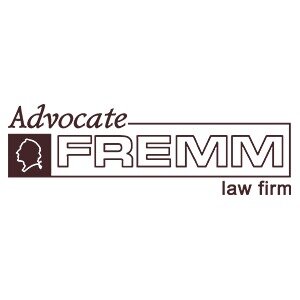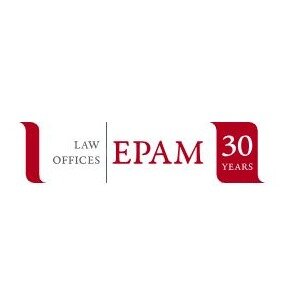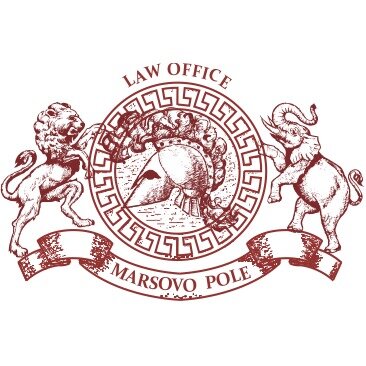
Best Arrests & Searches Lawyers in St Petersburg
Share your needs with us, get contacted by law firms.
Free. Takes 2 min.
List of the best lawyers in St Petersburg, Russia


EPAM Law Firm

Marsovo Pole

Attorneys for criminal cases
About Arrests & Searches Law in St Petersburg, Russia
In St Petersburg, Russia, the process of arrests and searches is governed by the Russian Federation's Code of Criminal Procedure. These procedures are carefully outlined to ensure that the rights of citizens are protected while allowing law enforcement agencies to carry out their duties effectively. Both arrests and searches must be conducted under specific legal parameters to be considered lawful, and any evidence obtained through illegal arrests or searches could be deemed inadmissible in court.
Why You May Need a Lawyer
Legal assistance in matters of arrests and searches is crucial for several reasons. If you or someone you know has been arrested, a lawyer can help protect your rights and ensure that the arrest was made according to legal procedures. In cases where a search warrant is issued for a property, a lawyer can advise on the legality of the search and handle any issues related to the seizure of property. Lawyers also assist in navigating the complexities of the criminal justice system, including representing individuals in court and providing counsel during interrogations and trials.
Local Laws Overview
The key aspects of local laws in St Petersburg, Russia, regarding arrests and searches, include the requirement for a legal basis for any arrest, which usually means a warrant issued by a judge or, in instances requiring immediate action, a decision by law enforcement authorities with subsequent judicial approval. Searches similarly require a court-issued warrant unless there are exigent circumstances justifying immediate action. Both arrests and searches must comply with the principles of legality, necessity, and proportionality to avoid violations of individual rights.
Frequently Asked Questions
What constitutes a legal arrest in St Petersburg, Russia?
A legal arrest in St Petersburg must be based on a warrant issued by a competent authority or, in emergency situations, carried out by law enforcement followed by prompt judicial review.
Can the police search my home without a warrant?
The police need a court-issued search warrant to conduct a search of your home unless there are exceptional circumstances, such as immediate threat to life or the pursuit of a suspect.
Am I entitled to a lawyer if I am arrested?
Yes, you have the right to consult a lawyer as soon as you have been detained or arrested by the police.
What should I do if I believe my arrest was illegal?
If you believe your arrest was illegal, you should contact a lawyer immediately to address the situation and protect your rights.
How long can the police detain me without charges?
The police can detain an individual for up to 48 hours without charges. After this period, they must either release the individual or present them before a judge with evidence justifying further detention.
What are my rights during a police search?
During a police search, you have the right to be present unless your presence could obstruct the search. You also have the right to request a copy of the search warrant and to have a witness present.
Can law enforcement seize my property during a search?
Law enforcement can seize property during a lawful search if it is evidence of a crime; however, they must follow legal procedures and provide an inventory receipt for seized items.
What recourse do I have if I am subject to an unlawful search?
If you've been subjected to an unlawful search, you can file a complaint with a higher-ranking law enforcement agency or a court, and you may seek the exclusion of any illegally obtained evidence in your case.
How can I challenge an arrest or search?
To challenge an arrest or search, you should hire a lawyer who can file motions in court to contest the legality of the actions taken by law enforcement.
Are there any protections for personal digital data in searches?
Personal digital data is protected under Russian law, and law enforcement must have specific authorization to access such data during searches, either through a court warrant or under exigent legal circumstances.
Additional Resources
Individuals seeking assistance with legal issues related to arrests and searches in St Petersburg can turn to the following resources:
- The St Petersburg Bar Association - It offers a directory of lawyers skilled in criminal law.
- Legal clinics and aid centers - These provide free or low-cost legal assistance and advice.
- The Human Rights Ombudsman in St Petersburg - They protect citizens' rights and assist those who feel their rights have been violated.
Next Steps
If you need legal assistance related to arrests and searches, the following steps should be taken:
- Document everything - Record the details of your arrest or search, including times, dates, officers involved, and any witnesses.
- Contact a lawyer - As soon as possible, find a qualified criminal defense lawyer who can advise you on your rights and represent you in legal proceedings.
- Preserve evidence - Keep any relevant materials or information that could help your lawyer in defending your case.
- Remain silent - Understand your right to remain silent and avoid providing any statements to the police without your lawyer present.
- Follow legal advice - Adhere to the guidance provided by your lawyer to ensure the best possible outcome for your case.
The information provided on this page is intended for informational purposes only and should not be construed as legal advice. While we strive to present accurate and up-to-date information, we cannot guarantee the accuracy, completeness, or currentness of the content. Laws and regulations can change frequently, and interpretations of the law can vary. Therefore, you should consult with qualified legal professionals for specific advice tailored to your situation. We disclaim all liability for actions you take or fail to take based on any content on this page. If you find any information to be incorrect or outdated, please contact us, and we will make efforts to rectify it.

